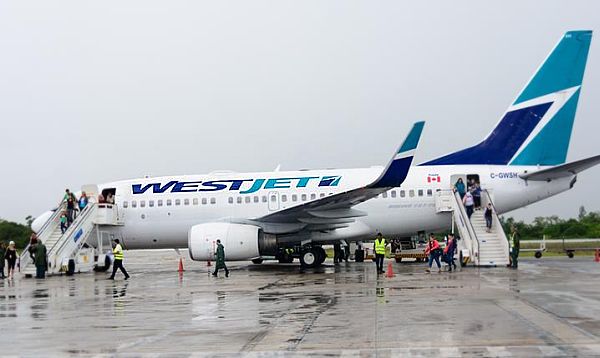A WestJet Airlines flight from Vancouver landed safely in Puerto Vallarta on Saturday, amid confusion over whether the jetliner may have sent a signal that it was being hijacked.
WestJet, in a press release, said "the rumor stemmed from a tweet by a flight-tracking website that the aircraft was transmitting a hijack code via its transponders."
WestJet Flight 2154 was scheduled to leave Vancouver, Canada, Saturday at 10:55am PST and land in Puerto Vallarta, Mexico, at 4:58pm CST - the flight didn't actually leave until 11:20am PST and landed at 5:48pm CST. At about 6:30pm EST, Flightradar24.com, a website that tracks airline signals, said the jet was transmitting an unconfirmed radio code for hijacking, sending off a surge of panic on Twitter before WestJet said the plane had arrived safely at its destination.
"At this point in time, WestJet has no evidence that such a code was ever transmitted," the company said in the statement. "Testing on the plane’s transponder shows it is - and was - functioning normally."
Preston Schlachter, a spokesman for the North American Aerospace Defense Command and US Northern Command, said in an e-mail on Sunday that a "response was not required because it was never determined that the aircraft was in danger."
Schlachter and another Norad spokesman confirmed with the US Federal Aviation Administration that the transmission was an accident.
WestJet, in a Twitter post, said that "contrary to Internet rumor, air traffic control has confirmed #WS2154 is ‘squawking’ standard transponder code, not 7500."
The code '7500' indicates a hijacking.
"Captain confirms by phone that #WS2154 has arrived safely at its destination," the airline said in another post. "The crew did not squawk 7500 as reported."
Source: Bloomberg


